Festivals in Karnataka in March 2025: A Deep Dive into Rituals and Celebrations
March in Karnataka is a month filled with vibrant festivals that showcase the rich cultural heritage, spirituality, and agricultural traditions of the region. This period brings together communities to celebrate the onset of spring and the Hindu New Year while honoring the deities through various rituals and festivities. Here, we’ll delve into the major festivals celebrated in Karnataka during March 2025, their significance, rituals, and the spirit they bring to this southern state.
Read More About Hindu Philosophy
1. Holi: The Festival of Colors
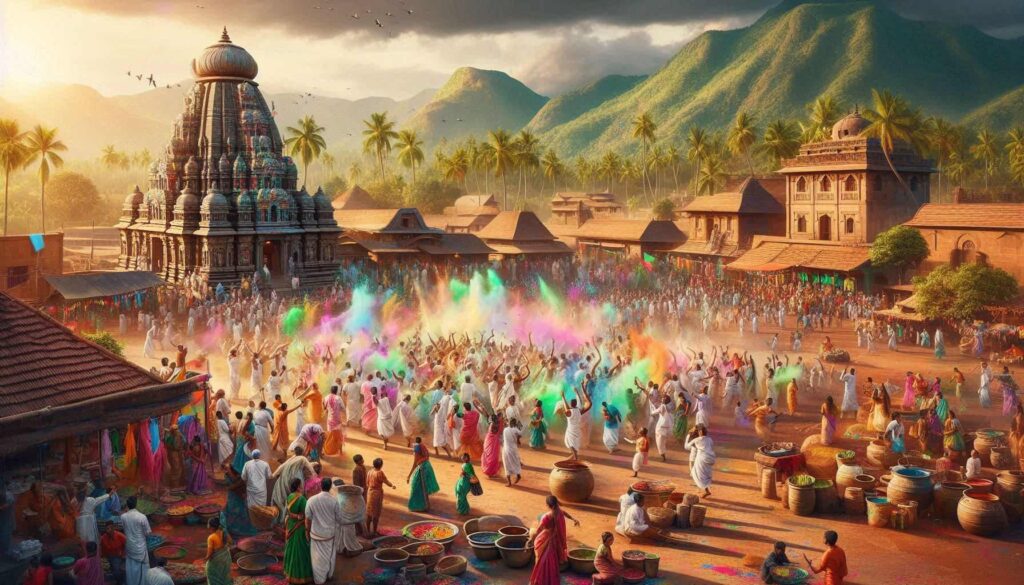
Holi, known for its colorful festivities, is celebrated with great enthusiasm throughout Karnataka. In March 2025, Holi falls around the early days of the month, marking the arrival of spring.
Significance and Rituals:
- Holika Dahan: The night before Holi, Karnataka’s cities and towns perform the Holika Dahan ritual, symbolizing the victory of good over evil. People gather around bonfires, praying and chanting as they burn away negativity and past conflicts.
- Color Play: The main celebration occurs the following day, with people throwing colored powders and water at each other. Children and adults alike participate in this joyous celebration. In places like Mysuru, the festivities are complemented by folk dances, musical performances, and traditional Kannada songs.
- Sweet Delicacies: Special sweets like Holige (a type of stuffed flatbread) are prepared to mark the occasion. People visit friends and family, sharing sweets and renewing relationships.
2. Ugadi: Karnataka’s New Year
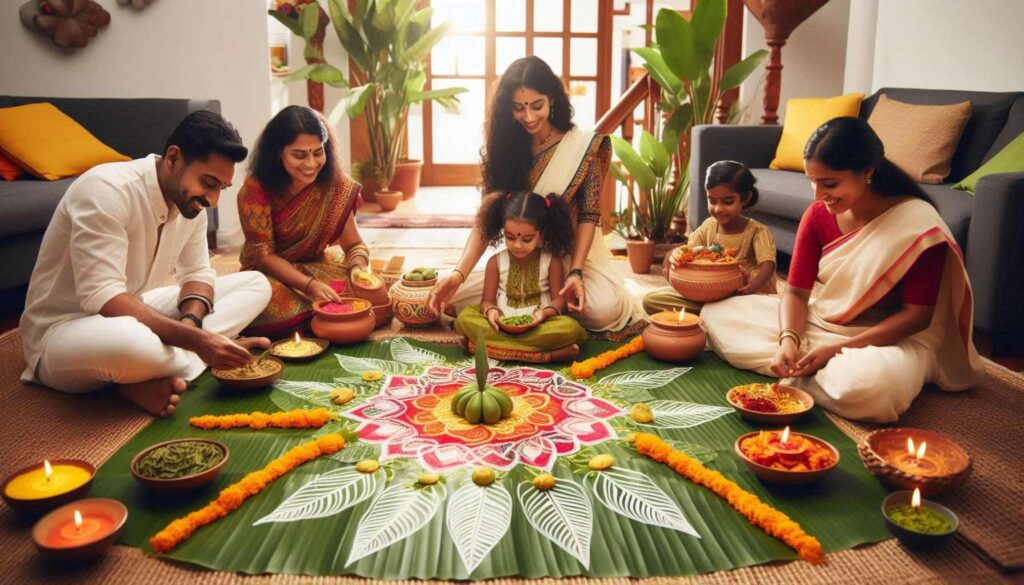
Ugadi, or the Kannada New Year, is one of the most significant festivals in Karnataka, celebrated with reverence and joy. Ugadi is observed as the start of a new year as per the Hindu lunisolar calendar and typically falls in March.
Significance and Rituals:
- Panchanga Shravanam: On Ugadi morning, families listen to the Panchanga (Hindu almanac) recitation by priests. This recitation forecasts the year ahead, including predictions on health, prosperity, and relationships.
- Cleaning and Decorating Homes: Homes are cleaned and decorated with mango leaves, rangoli patterns, and oil lamps to welcome the New Year with positive energy.
- Preparation of Bevu Bella: A unique mixture known as bevu bella is prepared from neem and jaggery, symbolizing the blend of bitter and sweet experiences in life. Consuming this mixture on Ugadi morning is a traditional ritual, encouraging resilience and optimism.
- Ugadi Feast: A grand feast is prepared, including dishes like holige, vangi bath (brinjal rice), and obattu (sweet flatbread). People dress in new clothes, visit temples, and celebrate with family.
3. Suggi Habba: The Harvest Festival
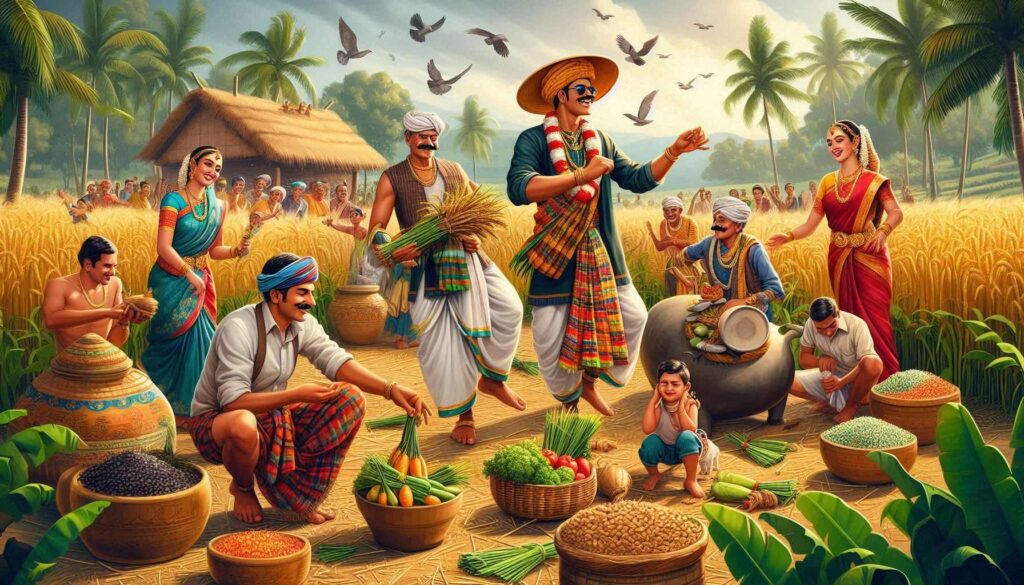
Suggi Habba, also known as the Harvest Festival, is celebrated mainly by the farming communities in Karnataka. In March, as the Rabi crops are harvested, Suggi Habba becomes a way to honor nature and thank the gods for a bountiful harvest.
Significance and Rituals:
- Village Gatherings: Suggi Habba is a community celebration, where villages come together for folk dances, singing, and feasting.
- Traditional Attire and Dances: Farmers dress in traditional attire and perform folk dances like Kamsale and Dollu Kunitha to express gratitude and joy for the harvest. The festival resonates with the sounds of drums, flutes, and other traditional instruments.
- Offering to Deities: Farmers offer their best produce to deities and seek blessings for the upcoming planting season. Local deities are often honored with processions and offerings.
Additional Celebrations in Karnataka in March 2025
Alongside these primary festivals, Karnataka hosts several other regional celebrations and temple fairs that enrich the cultural landscape.
4. Kambala: Traditional Buffalo Racing
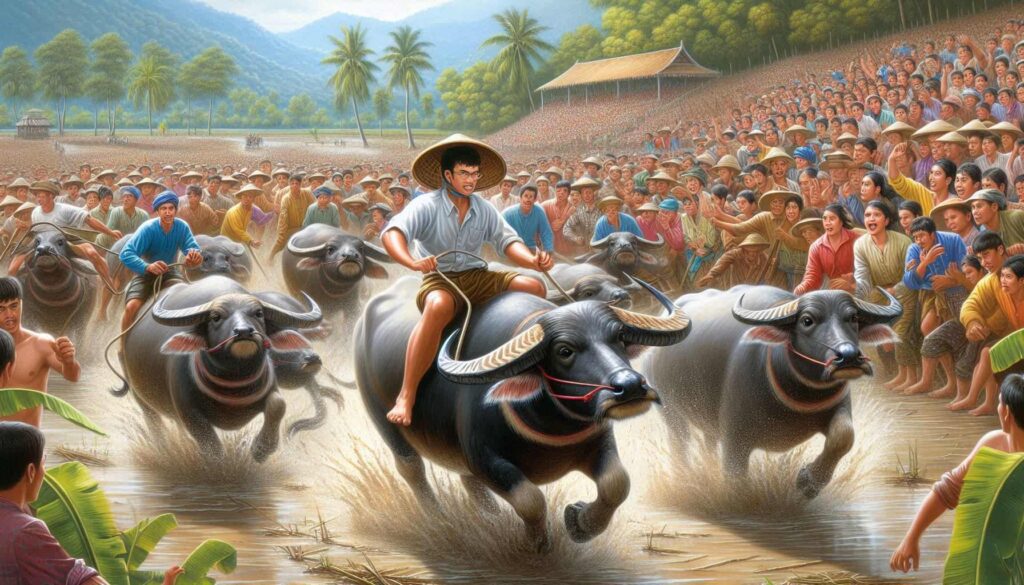
Kambala, a traditional buffalo race, is held in parts of coastal Karnataka during the spring months. Although primarily observed in January and February, certain regions extend these races into March.
- Race Tracks in Paddy Fields: Buffalos, guided by jockeys, race through muddy paddy fields, and the event is a huge crowd-puller.
- Celebration of Strength and Endurance: The event is not just a race; it’s a celebration of strength, speed, and teamwork.
5. Karaga Festival in Bangalore
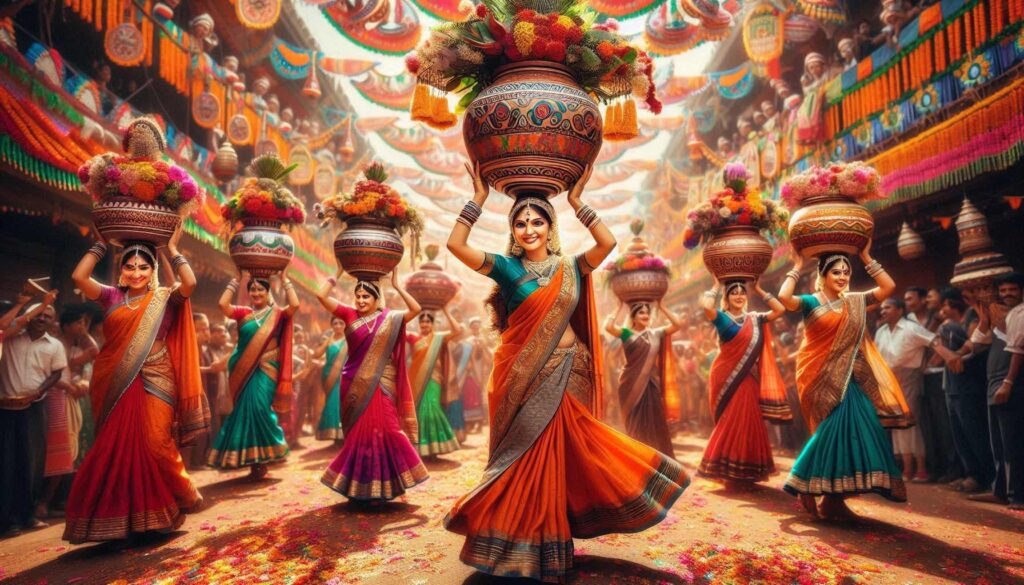
Although the Karaga festival typically peaks in April, the preparations and rituals begin well in advance. Celebrated in the Dharmaraya Swamy Temple in Bangalore, this festival honors Draupadi, the heroine of the Mahabharata.
The Karaga Festival is one of Bangalore’s most iconic and ancient festivals, held annually to honor Draupadi, a revered heroine of the Mahabharata. Celebrated primarily by the Thigala community, it takes place at the historic Dharmaraya Swamy Temple in Bangalore, typically during March or April, around the time of Chaitra Purnima, the full moon day in the Hindu month of Chaitra.
Origins and Cultural Significance
The festival dates back to over 800 years and is rooted in the belief that Draupadi, also known as Adi Shakti (a manifestation of the divine feminine energy), transforms into an embodiment of power and protection during the Karaga. The Thigala community, traditionally gardeners and warriors, are the primary organizers of this festival, and they honor Draupadi as their protector and goddess.
According to local lore, Draupadi’s devotion and sacrifice for her five husbands, the Pandavas, and her strength and resolve in times of war, exemplify her as a goddess. Her power is celebrated during the festival, where she is believed to embody the divine feminine energy that blesses and protects the community.
Rituals and Celebrations
- Preparatory Rituals: Leading up to the main event, rituals like prayers, offerings, and a series of purification ceremonies take place within the temple.
- Karaga Procession: The festival’s highlight is a nighttime procession where a male priest, representing Draupadi, dons feminine attire and carries the Karaga, a floral pyramid symbolizing the goddess, on his head. This requires intense training and physical discipline, as the priest must balance the Karaga while moving swiftly through the streets.
- Vows of Celibacy and Purity: The priest and his assistants observe strict celibacy and dietary restrictions before the procession, symbolizing purity and devotion.
- The Grand Procession Route: The Karaga is taken around the streets of Bangalore, making stops at other shrines and temples, and followed by a large crowd of devotees chanting prayers and hymns. This procession lasts until dawn and culminates back at the Dharmaraya Swamy Temple, where the Karaga is ceremoniously placed back on the altar.
- Sword Dance: The festival also features a traditional sword dance, where dancers perform intricate routines with swords to honor Draupadi’s role as a fierce protector.
Symbolism and Community Importance
The Karaga Festival is more than a celebration; it’s an expression of community identity, unity, and devotion among the Thigalas. It is a powerful symbol of how Hindu mythology, tradition, and spirituality intersect in regional practices. For the people of Bangalore, Karaga represents a connection to their historical roots, and the presence of a diverse audience showcases its cultural inclusivity.
Quotes and Cultural Insights
- Quote: “The Karaga Festival is the pride of Bangalore, carrying the legacy of Draupadi’s valor and purity.”
- Insight: The Karaga Festival’s unique blend of mythological reverence, vibrant processions, and intricate rituals has cemented it as a crucial cultural event, attracting devotees and onlookers from across India and beyond.
For more details about Karaga’s origins, community significance, and a detailed account of the procession route, visiting Dharmaraya Swamy Temple in Bangalore during the festival offers a firsthand experience of this mesmerizing event.


